Hanbyul Kim
Online Difficulty Filtering for Reasoning Oriented Reinforcement Learning
Apr 04, 2025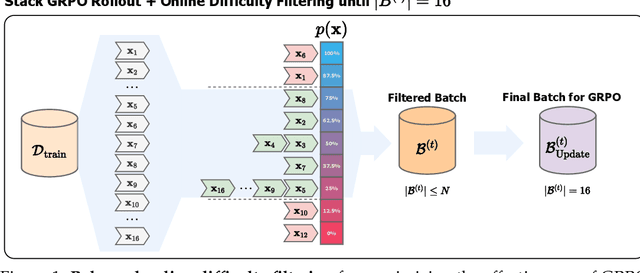
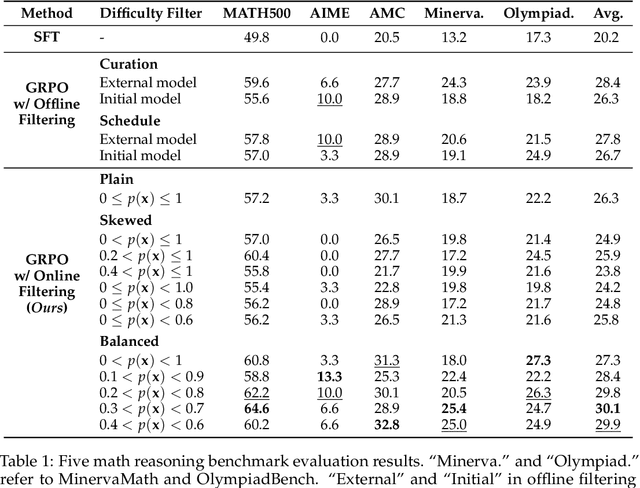
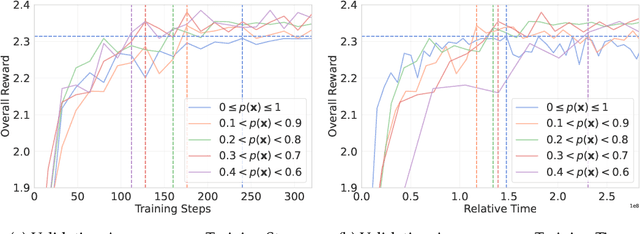
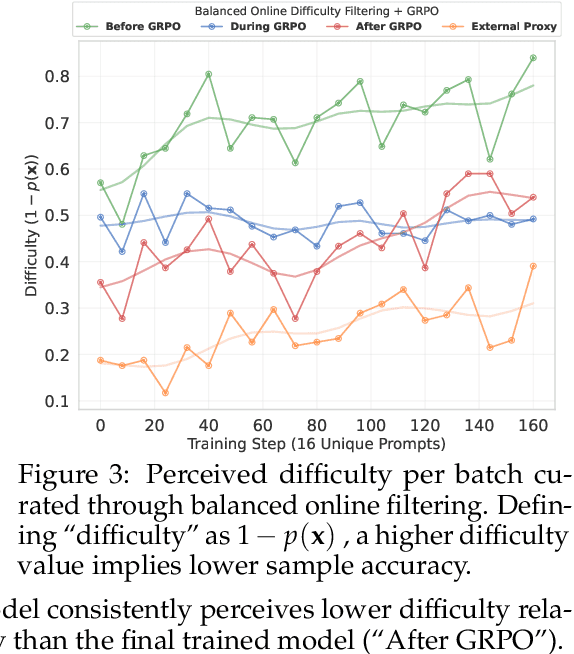
Abstract:Reasoning-Oriented Reinforcement Learning (RORL) enhances the reasoning ability of Large Language Models (LLMs). However, due to the sparsity of rewards in RORL, effective training is highly dependent on the selection of problems of appropriate difficulty. Although curriculum learning attempts to address this by adjusting difficulty, it often relies on static schedules, and even recent online filtering methods lack theoretical grounding and a systematic understanding of their effectiveness. In this work, we theoretically and empirically show that curating the batch with the problems that the training model achieves intermediate accuracy on the fly can maximize the effectiveness of RORL training, namely balanced online difficulty filtering. We first derive that the lower bound of the KL divergence between the initial and the optimal policy can be expressed with the variance of the sampled accuracy. Building on those insights, we show that balanced filtering can maximize the lower bound, leading to better performance. Experimental results across five challenging math reasoning benchmarks show that balanced online filtering yields an additional 10% in AIME and 4% improvements in average over plain GRPO. Moreover, further analysis shows the gains in sample efficiency and training time efficiency, exceeding the maximum reward of plain GRPO within 60% training time and the volume of the training set.
Lightweight Audio Segmentation for Long-form Speech Translation
Jun 15, 2024
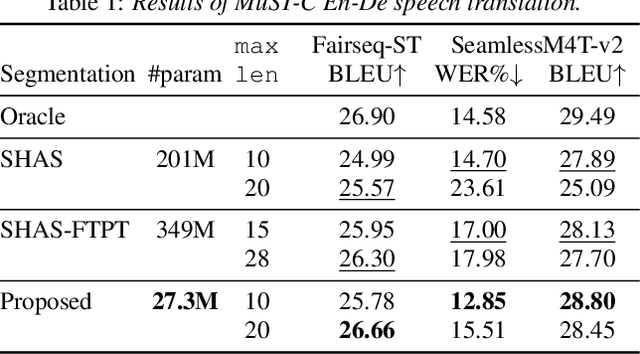

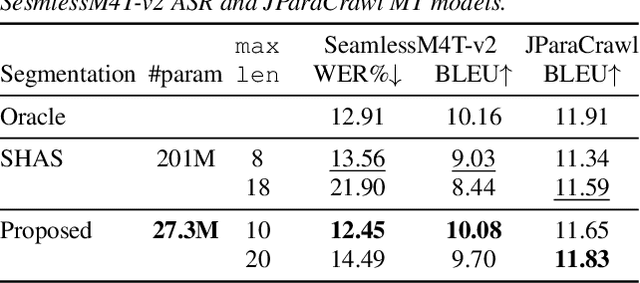
Abstract:Speech segmentation is an essential part of speech translation (ST) systems in real-world scenarios. Since most ST models are designed to process speech segments, long-form audio must be partitioned into shorter segments before translation. Recently, data-driven approaches for the speech segmentation task have been developed. Although the approaches improve overall translation quality, a performance gap exists due to a mismatch between the models and ST systems. In addition, the prior works require large self-supervised speech models, which consume significant computational resources. In this work, we propose a segmentation model that achieves better speech translation quality with a small model size. We propose an ASR-with-punctuation task as an effective pre-training strategy for the segmentation model. We also show that proper integration of the speech segmentation model into the underlying ST system is critical to improve overall translation quality at inference time.
HyperCLOVA X Technical Report
Apr 13, 2024Abstract:We introduce HyperCLOVA X, a family of large language models (LLMs) tailored to the Korean language and culture, along with competitive capabilities in English, math, and coding. HyperCLOVA X was trained on a balanced mix of Korean, English, and code data, followed by instruction-tuning with high-quality human-annotated datasets while abiding by strict safety guidelines reflecting our commitment to responsible AI. The model is evaluated across various benchmarks, including comprehensive reasoning, knowledge, commonsense, factuality, coding, math, chatting, instruction-following, and harmlessness, in both Korean and English. HyperCLOVA X exhibits strong reasoning capabilities in Korean backed by a deep understanding of the language and cultural nuances. Further analysis of the inherent bilingual nature and its extension to multilingualism highlights the model's cross-lingual proficiency and strong generalization ability to untargeted languages, including machine translation between several language pairs and cross-lingual inference tasks. We believe that HyperCLOVA X can provide helpful guidance for regions or countries in developing their sovereign LLMs.
Improved Training for End-to-End Streaming Automatic Speech Recognition Model with Punctuation
Jun 02, 2023Abstract:Punctuated text prediction is crucial for automatic speech recognition as it enhances readability and impacts downstream natural language processing tasks. In streaming scenarios, the ability to predict punctuation in real-time is particularly desirable but presents a difficult technical challenge. In this work, we propose a method for predicting punctuated text from input speech using a chunk-based Transformer encoder trained with Connectionist Temporal Classification (CTC) loss. The acoustic model trained with long sequences by concatenating the input and target sequences can learn punctuation marks attached to the end of sentences more effectively. Additionally, by combining CTC losses on the chunks and utterances, we achieved both the improved F1 score of punctuation prediction and Word Error Rate (WER).
 Add to Chrome
Add to Chrome Add to Firefox
Add to Firefox Add to Edge
Add to Edge